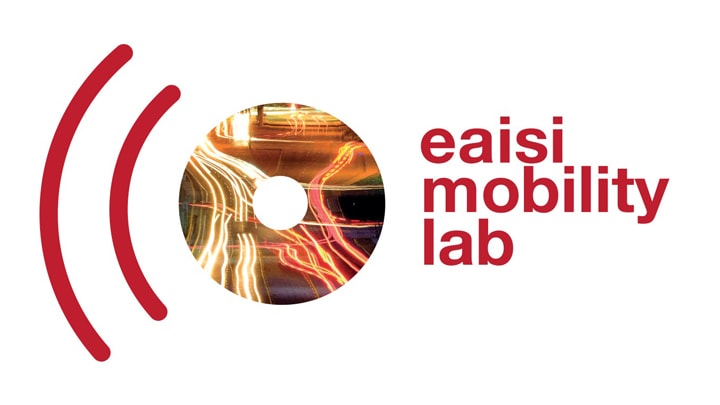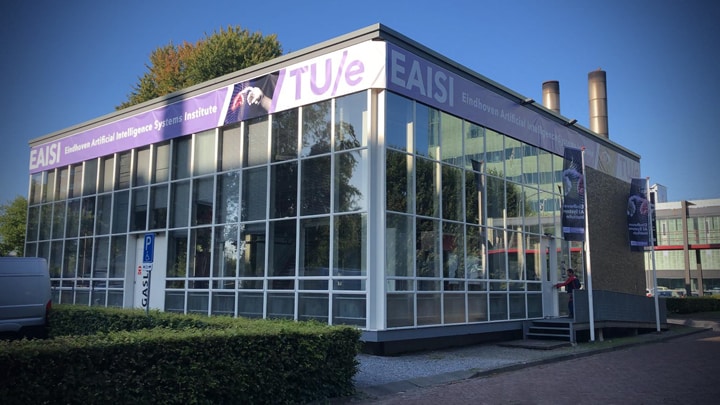Author

Freek van Vlerken
Freek van Vlerken is a member of the NXP Impact team which provides inspiring stories about NXP's technological and societal impact.

The Innovation Center for Artificial Intelligence (ICAI) is a Dutch national network focused on the development of technology and talent through research programs in the field of AI. In collaboration between knowledge institutes, industry and government, ICAI has established almost 20 dedicated research “Labs” with fifty partners from across industry. The latest is the EAISI Mobility Lab, a joint effort between NXP and the Eindhoven University of Technology (TU/e).
The Eindhoven Artificial Intelligence Systems Institute (EAISI) is the brainchild of the (TU/e). Together with NXP, they have now created the EAISI Mobility Lab as part of the ICAI network of Labs. We spoke with Brian de Bart, from the NXP Automotive Systems Innovation team, who is NXP’s Program Manager for the Lab, to find out about the work of the lab and how it benefits NXP.

Starting with 5 PhD students (from video coding and architectures and control systems technology research groups) and two technical directors from NXP, the program is set to extend to more than 12, with a mix of PhDs, Master’s and PDEng (professional doctorate of engineering) students, all focused on AI and how it can help mobility.
I came on board in December 2019, after joining the CTO organization, where I was asked to take over discussions on setting up closer cooperation in AI with the university. I am the Program Manager, not involved with the technical side, but with making sure things run smoothly, promoting the lab internally, to see if there are other business lines that might benefit from joining in with an additional project for a PhD.
The Lab aims to make traffic safer by using artificial intelligence and machine learning (AI/ML) technologies, improving the perception capabilities of the vehicle, which can then suggest or take action for the driver. With AI/ML, we can also improve the sensitivity of sensors, for instance by filtering out noise from other signals, other radar and so on.

The EAISI Mobility Lab is a joint program of NXP and the Eindoven University of Technology
We bring in our automotive knowledge, our know-how on making chips, components that are low-cost and low power. And the students come with all the knowledge on AI, as well as their ideas, and we help them to make those ideas and algorithms work on a chip.
The University actually has a car set up, where they have mounted our radars, our components and our BlueBox, to capture and process sensor data.
AI is a very hot topic and a lot of the existing state of-the-art knowledge is on the academic side. It’s a brand new field and the Lab is a source of new knowledge and research for us. We are investing in AI, as it's a promising technology to improve our products and we see a lot of customers asking to run AI algorithms on our processors. So we need to provide a complete platform for that and invest to see how we can use and monetize the technology. So, it’s important that we tap into the knowledge in the academic world, hence this cooperation in Eindhoven.

We have a strong belief that AI/ML will help us improve our products and we have compelling requests from customers to run AI/ML algorithms on our processor platforms. Our challenge is to make a processor which has the right cost at the right power consumption, giving the right performance to customers. That’s what we hope to get out of these kinds of collaborations, that they will lead us to make better products that fit our customers’ needs and improve safety in the driving world.
I think so, yes. Of course some of these topics are purely mobility focused, automotive radar for instance. But finding out how to make an optimal AI processor, that's a more generic challenge and one that we can also re-use in other product lines throughout NXP.

Sr. Manager Corporate Communications, NXP Semiconductors
Freek van Vlerken is a member of the NXP Impact team which provides inspiring stories about NXP's technological and societal impact.